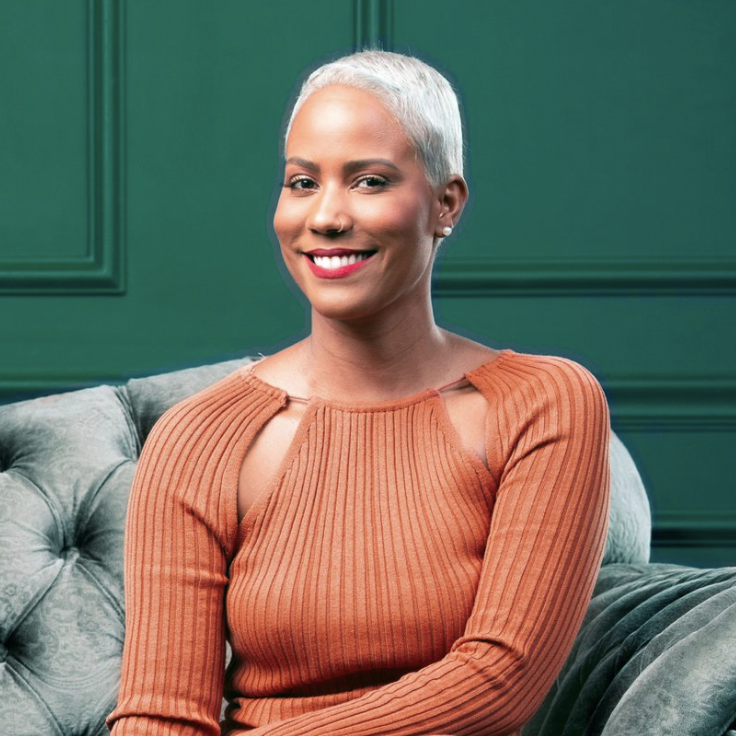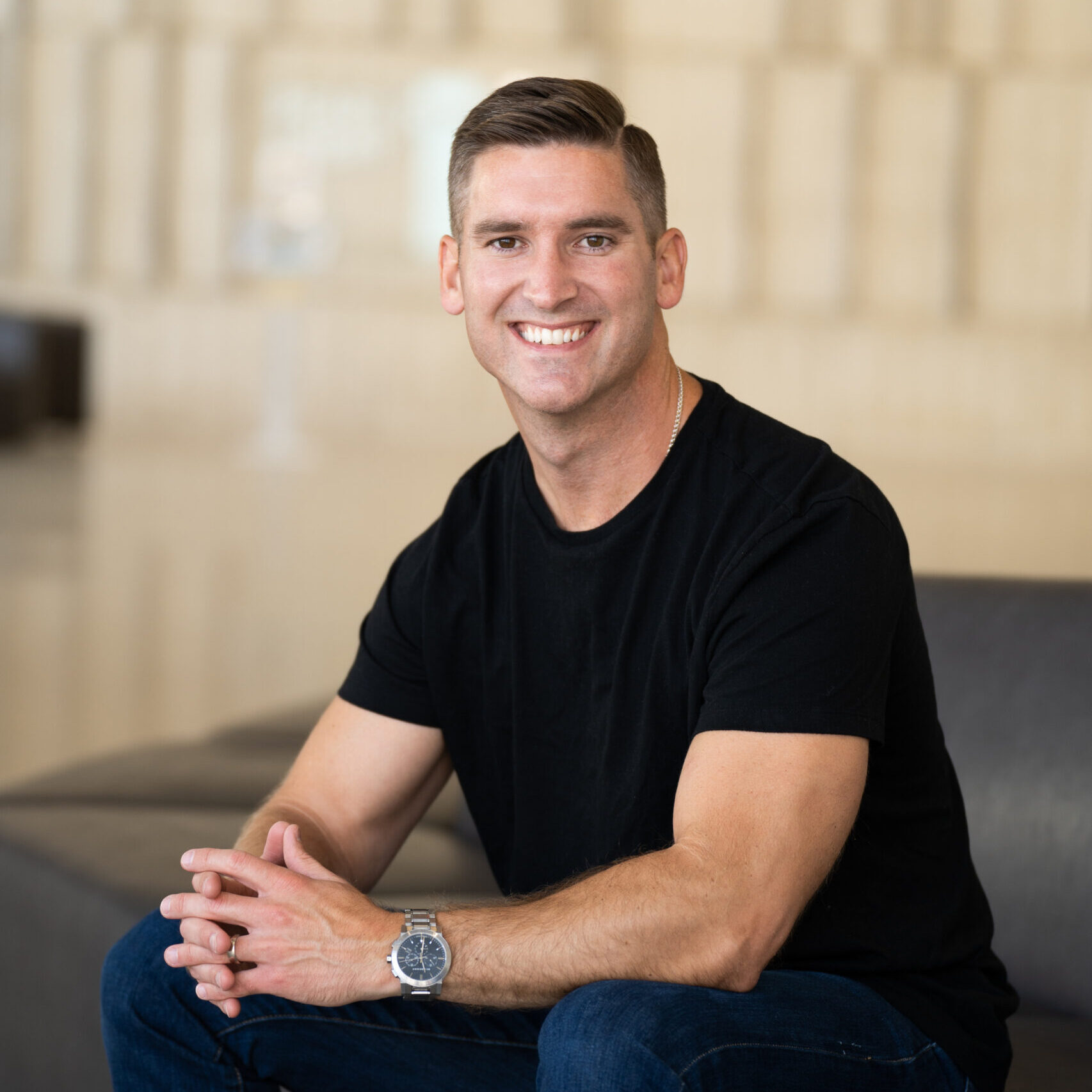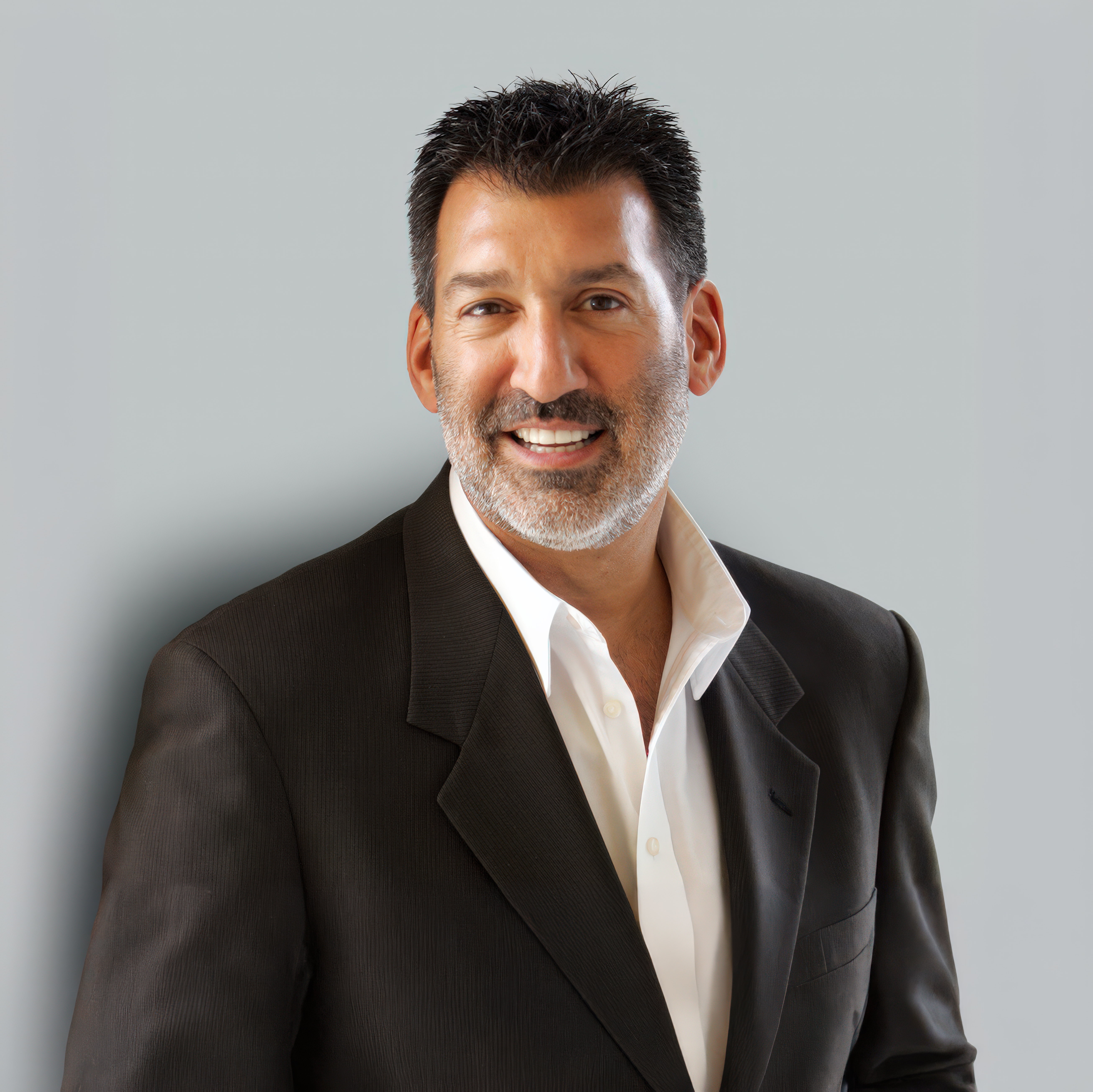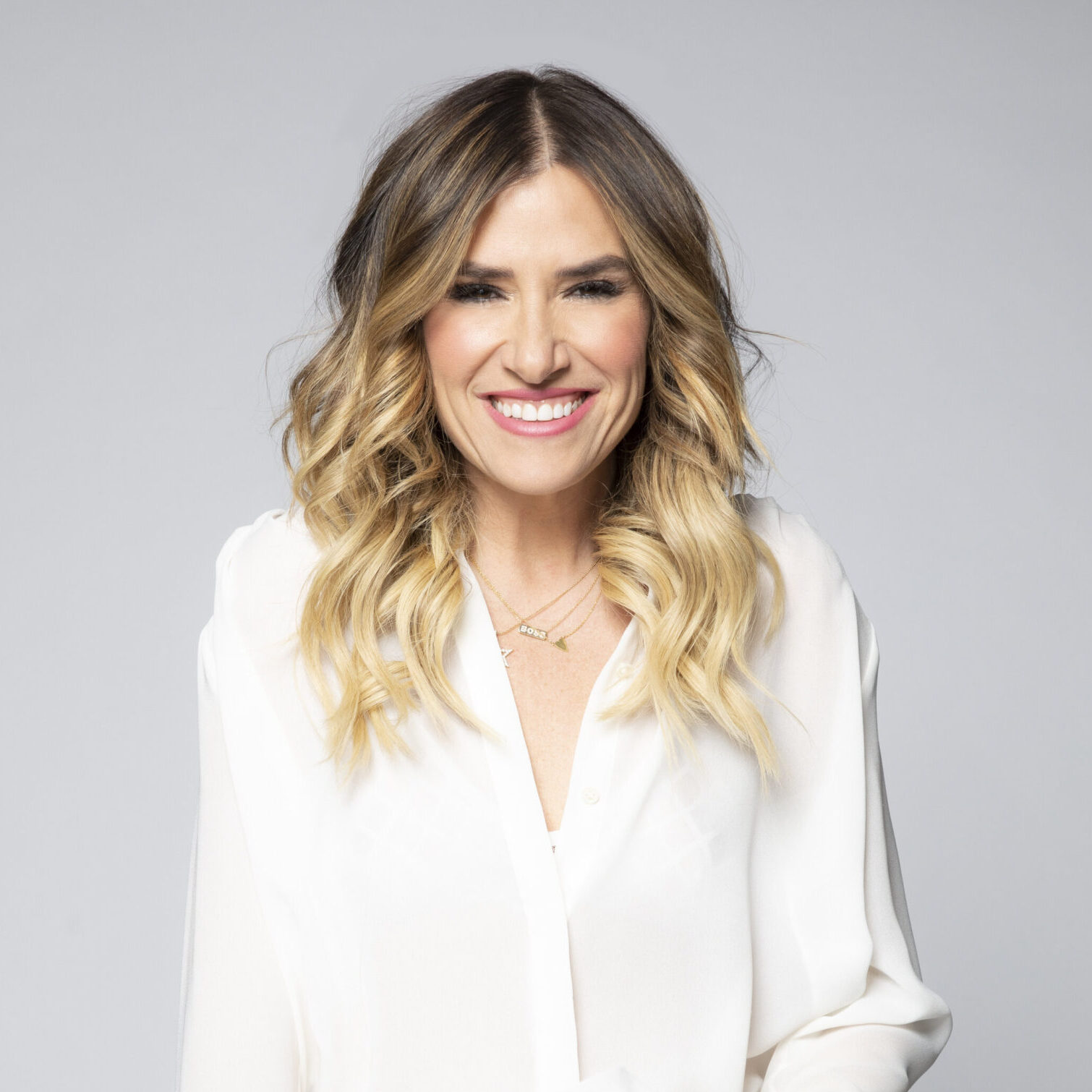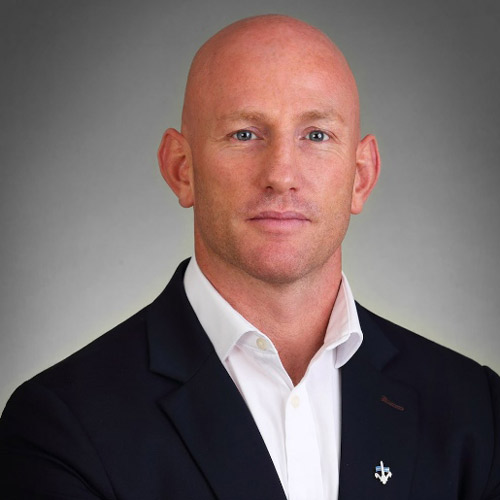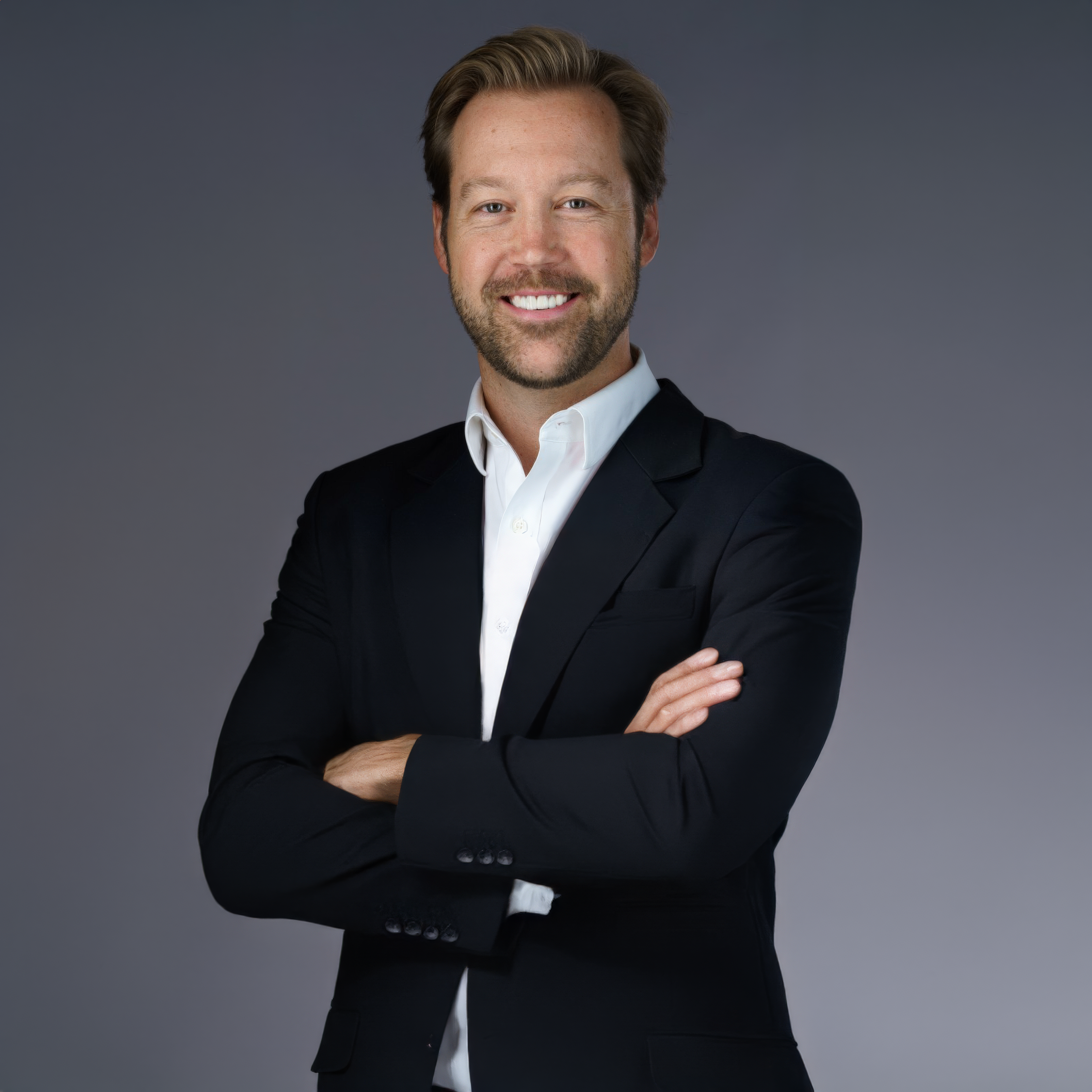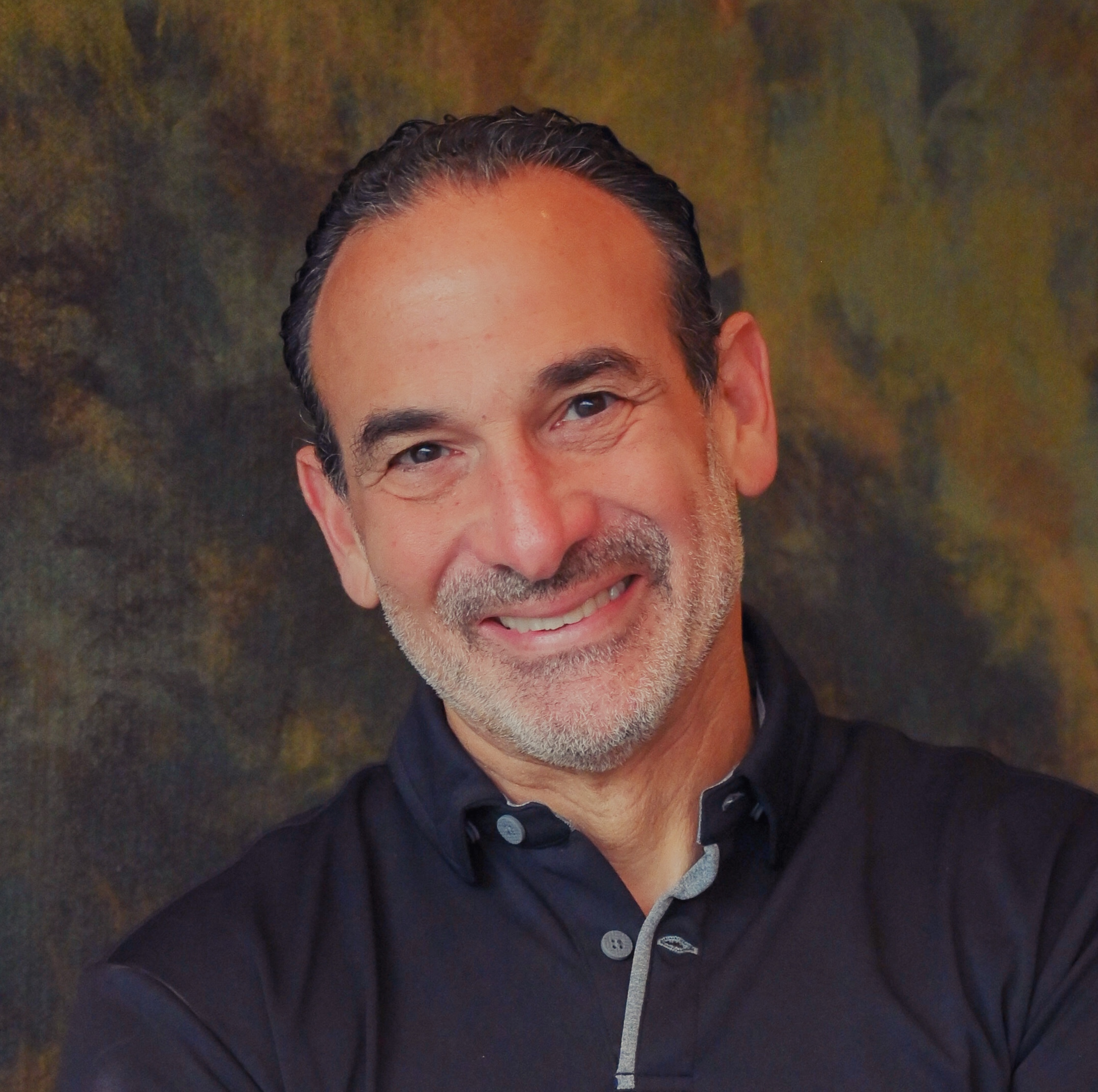RV (00:02):
I am delighted that you get to meet a newer friend of mine, but someone who I absolutely adore and I feel is really, really a special soul. And this woman is a true expert and a total class act, and you probably have already seen her on social, but I predict that she’s, she’s gonna be one of the most influential personal brands in the mental health space in our era. So her name is Dr. Mariel Buque, and she is a Columbia University trained psychologist. Okay. So she’s an actual psychologist, a trauma expert. She’s the author of a book coming out called Break the Cycle which is from Penguin which is my publisher, Woohoo. Go Penguin. And she’s been featured on CNN and the Today Show b ABC News, and she does corporate wellness workshops to companies like Google and Twitter and Capital One and Facebook.
RV (00:57):
Her and I shared the stage together at Louis How Summit of Greatness. So she was one of the other speakers, and that was how I met her. And I immediately was like, Aw, I just love this woman. She’s awesome. And so we got to connect a little bit and I want you to hear her story because, you know, she, she was a psychologist and she had a practice, which we’re gonna talk about, and she’s gone from that to over 700,000 followers online. Huge following on both, both Instagram and TikTok. And so I want to hear about some of what her strategy’s been with social media, how she kind of went from, you know private practice to personal brand and just kind of hear that journey. And then also, you know, maybe, maybe we’ll get some free trauma counseling out of it along the way. So Dr. Mariel Buque, welcome to the show.
MB (01:49):
Thank you so much. Rory I’m such a fan of yours just from a professional standpoint, but also you’re just such a wonderful person and so I’m, I’m delighted to be with you here today.
RV (02:00):
Well, thanks buddy. I, so, so tell us your story. So you go to Columbia, you become, you, you’re a classically trained psychologist, and then did you immediately, like, start a, a private practice?
MB (02:13):
No, actually I started a private practice in the pandemic, but even prior to, I was already offering some education online as a student. So part of the reason why I decided to start offering information was because I was seeing so much of this information floating through these ivory towers, right? We have like these peer review journals and all these places where we place information that’s really important for the public to know, but it wasn’t really out there. And so I was like, okay, social media is a public space that can be a space where people can gather some of this mental health information. So it kind of all started even before I graduated, about a year or two before that. And then I transitioned into being a psychologist at Columbia University Medical Center. So I was a staff psychologist there in addition to also holding some courses. I was a professor in the medical center and in the main campus. And then within a year’s time, that’s when I developed my private practice. So I was very busy.
RV (03:17):
Wow. Okay. All, so you actually started while you were still in school, so you were still, you were a grad student mm-hmm. . And and then, and then you were, you said you were a counselor at Columbia University Medical and also a professor.
MB (03:31):
That’s
RV (03:31):
Right, yeah. And then went into private practice. So, so talk to me a little bit about social media, like the journey on social media, because I think there’s a lot of, a lot of people say, well, I’m not an online influencer, and I don’t know if social media applies to me because I don’t wanna do dances on TikTok, or, you know, I don’t really want to do hashtags. And our audience, you know, we describe as mission driven messengers mm-hmm. , and if I had to sum it up in one word, I would call ’em experts. I would say that they’re experts and, and you know, I just have this deep-rooted belief that you, you know, there’s nothing wrong with all of these things. You know, different transitions and reels and like, you know, learning all the skills, the hashtags and the angles and the, you know, the dancing and the music and whatever.
RV (04:17):
But I’m a, I’m a really firm believer that if you just share your expertise, there’s gotta be a way to make this all work. And when I look at, when I follow you and I go, oh my gosh, you have blown up so massively. So can you just like, tell us how did you get started on social media? What are some of your philosophies there? And, and also like, yeah, just like your mindset of going, you know, you’re a Columbia trained psychologist, but yet you’re on social media and, and, and going, there’s a little bit of a dichotomy there of like credibility mm-hmm. things, but clearly you’ve, you’ve made it work for you in a really big way.
MB (04:55):
Yeah. You know, it’s so interesting that you say the, that there’s that dichotomy because when I first started off, I actually, I was really hopeful that none of my professors would find me on social media, , .
MB (05:11):
Cause I thought, you know, this perhaps doesn’t present as professional. They might have some sort of view on what, how I’m presenting the information to make it more accessible to the general public and not feel like this, like very dense clinical information. And so there were so many things that I had to think about in, in reference to how to make the information feel like it was reaching the places that I wanted it to reach. And interestingly enough, I’m actually going to speak at Columbia this week. So it’s, it’s very, very interesting how that, the reason why I’m going to go speak at Columbia is because of the visibility that I’ve been able to amass based on social media. So it, it’s just coming back so full circle where, where,
RV (05:57):
I just think it’s funny cuz it’s like, normally, you know, people post stuff online and they’re like, I hope my parents don’t find out, or I hope like, you know, my, my boyfriend and my girlfriend doesn’t see. And you’re like, yeah, I hope my professors don’t see, I think . That’s, that’s so funny. Yeah.
MB (06:12):
You know, it was in part because it was so new, like, I was one of the, the first therapists and therapists in training that were coming into the social media space. So we didn’t have a blueprint for how we were supposed to be showing up into these spaces. We were just doing it based on our own personal style. And this is one thing that I, you know, I’ve, I’ve learned even through looking at your work, shout out to Lewis House also, like looking at how Louis shows up to the work itself as well. And I, because I show up from a place of wanting to serve in addition to wanting to be very authentic in my delivery, I think that’s worked out really well for me. And it’s something that people have gravitated to because they appreciate the authentic expression of the things that I say.
MB (07:01):
Right? And like being able to connect with the real human, but then also because I show up from a place of wanting to serve every day, I present information that is driven towards like, helping the public to better feel, better educated, and feel healed. And so that allows me to step into these spaces without having to overthink how it is reflected upon me. So I think that that’s been really helpful and being able to see the folks that I’ve been able to connect with, like you and Lewis and others, and also just bring in my own element of authenticity into this work. And I think that that has contributed to the, the amalgamation of like, you know followers across all these social media spaces.
RV (07:46):
Mm-Hmm. . Yeah, I mean, I, I think that’s really powerful because you go, Hey, on the one hand, I don’t wanna risk like my professional credibility with my peers and my colleagues. On the other hand, you’re, you’re going, I’m using social media as an outlet to serve people so that I’m, I’m deliberately trying to make this information more accessible, as you say, which I think is a, is a great word, word for it. So how would you describe your social media strategy? Like, when you just think about it and you go, in my mind, here’s what I think about in terms of the type of content I’m gonna present, the way I’m gonna present it, the frequency at which I’m gonna present it. Can you just like, talk to us briefly about about that? Like just what, what are some of, what’s your mindset as a, as how you approach content creation for social?
MB (08:42):
Mm. Ooh, I love this question. Content creation has been a combination of a few things. The first of which is a unique approach that has been very, very much a part of what has driven like my mission to show up in these spaces. And what I mean by that is, I have this way that I present information with something that I do every single day, which is drink tea. And so I present the information like I’m having tea with someone and I’m breaking the fourth wall and I’m engaging the person. And when I started doing that, I started getting the feedback that people were actually feeling like they were landing in a gentle place where they can actually like listen to a tip that felt doable, accessible. And so when I started hearing from my community that that was the case, I started doing more of those very unique types of videos. In addition to that, in terms of the cadence, I believe that right now algorithms are a little bit influx, but what matters is that people notice your presence. So I have had a steady flow of information for now almost seven years.
RV (09:56):
Wow.
MB (09:57):
Yeah. It’s been a while. . So the information has looked very different because I started off just as many of us did with very dry mental health information. Like, this is depression, this is anxiety, these are the symptoms. And we were just educating the public and bringing that information out. Whereas now there’s a lot more that people are talking about, what is codependency? What’s trauma, you know? So there are a lot more nuances that people are willing to engage in, in terms of the work. And so there’s more that we can do in terms of how we can deliver it. And there’s so much more content that we can actually use because people are having, you know, these kinds of words in their vocabulary and they’re, they’re understanding what we’re saying outside of the therapy room. So the cadence is daily. And what I aim to do is to provide information that hopefully people feel is new in some way.
MB (10:52):
Like, I presented information about grief the other day and how grief is connected to healing. That’s something that a lot of people, my followers were like, wow, I never thought of it that way. This is something that I’d like to sit with. Right? And so the fact that it’s new information, or at least my, my interpretation of how healing can look is allowing someone to take a step back into their life and really think about their healing work in a different way. So I try to add that element in there too, in addition to the other pieces. But I have realized that when you show up with consistency, people that digest your information are really grateful for the fact that you’re willing to do that.
RV (11:38):
When you say daily, break that down for me, like mm-hmm. , does that, does that mean every single day? Saturday and Sunday? Does that mean multiple times a day? Does that mean you’re like going, you have a YouTube video every day and a bunch of, you know, Instagram posts? Like, like talk to me about that. The, what, when you say showing up daily, cuz that’s, that’s an, that’s an insight in and of itself to just go like, Hey, you’ve been doing this for seven years. It’s, it’s not an overnight success story. Mm-Hmm. . And it’s like consistency always wins. I mean, if you post great content for seven years, how could you lose? Like, but, but break it down. Tell me the seven, well, tell me what you’re doing every day. Like what’s your daily rhythm?
MB (12:21):
Yeah. So I must say there is one day where I’m no longer posting, and that’s because I’ve looked into my insights and that day isn’t a very highly engaging day, which is Friday. And so every platform’s different, every account is different. So I would urge anyone that is like hoping to understand how their users are digesting their content to look into their insights. So Fridays is the day off, basically, but on my bigger platforms on Instagram and TikTok, there is a, an almost daily presentation of information in some way or another. There’s a carousel post, there’s a video, there’s some sort of a repost of somewhere where I’ve been. And I have also restructured, especially my Instagram into being break the cycle of trauma, that being one account, which is primarily the information that you’ll find in my upcoming book, and like information that can be digestible around trauma.
MB (13:23):
And then there’s my main account, Dr. Dot Mario Bouquet, which is where I present some information about what I have going on in addition to some mental health tips. So there, I, I’ve actually just recently broken them out instead of having everything live in one space. And the reason being is because I wanted there to be a space where people can go to and then just digest the information and a space where pe where that would be more branded in, in reference to my own personal brand. Now typically what the posts look like are carousel posts or reels, given that they’re so popular now with a boom of TikTok. And whenever I’m doing a tee time video presenting information in that way, that’s typically presented like on a weekly, now two times a month basis. And I, I find that presenting the information in that way gives people an, an opportunity to look forward to the information and to really digest it even more. Versus when I was posting a video on tee time and trauma every single day, I felt like I was oversaturating my audience and it wasn’t being received in the same way. So I did do a little bit of internal studying of what has worked, what the feedback I’ve received in the comments section, dms, I get emails every day. So all of this, I’ve kind of created my own self case study, if you may, and it has led me to figure out what the right cadence is for me on each of these platforms.
RV (15:01):
Mm-Hmm. and, and so, so is tee time a longer format post?
MB (15:07):
It is, it’s an approximate minute of me inviting someone to tea, offering up a, a bit of information about mental health, providing a mental health tip that they can try for the week, and then closing out the segment within a minute’s time. I don’t know how I do it, but it, it gets done.
RV (15:25):
Okay. And so you do that, you do that only once a week?
MB (15:28):
Once a week, sometimes twice a month, just depending on whether or not I can actually provide my team with the video that they need to chop up and make into a tee time. But yes, once a week.
RV (15:42):
Okay. But it’s, it’s only a 62nd video.
MB (15:45):
Yeah, it is. Yeah. But it, it’s, it’s about seven minutes before it’s chopped up.
RV (15:50):
Oh, it’s a seven. So it’s a seven minute video mm-hmm. that you record that then gets chopped up and they take like one, the, like, the top 60 seconds of it and that’s what they turn into a post for you? Yeah,
MB (16:02):
Yeah, because it’s a, it has a certain style, so it’s chopped up in a certain way where it’s inviting, it’s a little bit on the therapy humor and but it brings us back into something that’s a little more serious, so it has a flow to it and the editing behind it you know, requires for me to have a little bit more B-roll.
RV (16:21):
Got it. And then the rest of that, like every day you’re doing just a carousel post with more of like just text copy and tips that way and, and then other personal stuff or re-sharing things that you’ve been up to. Mm-Hmm.
MB (16:36):
. That’s right. Yeah.
RV (16:38):
Mm-Hmm. . How, and so tell me about your team. So you bring up a good, a good point, right? I think this is something that people struggle with as they’re like, okay, well, you know, I, I have some of this, I have some expertise, right? Like, I’m a lawyer, or I’m a, you know, I’m a C P A or whatever. I’m a financial advisor. Like I’ve got this, this professional, you know, expertise, but I don’t have the time to do this and I don’t, maybe I don’t love social media or don’t even feel comfortable, like, or maybe I don’t even get on the apps that much and like, push the buttons and like, know what to do to whatever, edit the, edit the reels and, and, and all of that. How do you get around that and how big is your team? And, and, and talk me through like the evolution of your team. So when you first started, I’m guessing you maybe did, were doing it yourself. And then how has that evolved where you’re at now?
MB (17:28):
Yeah. So I absolutely first started with doing it every, doing everything myself. And interestingly enough, when I was doing interviews for publishers, like shopping around publishers to determine who I was gonna go with for my book in every single meeting, and I have 15 of these me meetings Wow. Within a two day span. And in all of those meetings, everyone asked you do all that yourself. And I said, yes, I do. And so they actually couldn’t believe it, but I realized in that moment, I need to outsource. I’m clearly doing much more than what I need to be doing. And what I learned in that journey is that people have an area of expertise in their respective area that can help burgeon your platform that you may not have. And outsourcing is actually one of the wisest things that you can do in order to really build a platform beyond, you know, where you are.
MB (18:22):
So right now, my team is still relatively small, but it’s a very mighty team. And so I have a brand manager someone who is a, a content creator and facilitates a lot of the brand elements of what is forward facing to my followers. I have someone who manages more of the financial side of things and helps me in orienting me around those moving pieces. Someone who in essence oversees everyone else who is more of a business manager and oversees also all of the moving pieces of the business, including speaking, although I am transitioning into speaking via a speaker’s bureau and which is it, it’s still tentative who I’m gonna go with. But I have been managing all of that on my own, on the backend with my team. And so there is a person that helps me to make sure that everything is like running smoothly.
MB (19:28):
So it’s been, in essence, more of a, with myself included four person team, which I think given how much I have on my plate is most of what I can manage. But I do believe that having someone that oversees everything has freed up a lot of my own space to be able to be creative, know what kind of content I wanna put out, because I still very much am tied to that part of the work. And the reason being is because it’s such sensitive material that I have to be closely connected to it, whatever goes out into the public. And so it, it gives me an opportunity to do that, to write and to think about, you know, the evolution of what will be out there in the future for, for all of us, for my business.
RV (20:12):
Mm-Hmm. . Yeah. So, and, and business model wise. So you finished school mm-hmm.
MB (20:20):
RV (20:21):
When, when you first started, you, you, you were a counselor, right? So you, you, you, you were taking on clients and that was how you were bringing in most of your money mm-hmm. and then how, how has your bus, how has the business model evolved? Like, how have the revenue streams kind of come and gone and changed over the, over the time span of, of making this like your official full-time gig? Mm-Hmm.
MB (20:45):
. So it has had an evolution that has geared in the direction of consulting, writing, and speaking. So those are my main areas. Now. I do a lot of corporate wellness consulting. And then as you mentioned, you know, kind of through some of my bio stuff, and then also with the authorship journey, it’s my very first book, right? So I did give myself an opportunity to, to streamline everything else so that I can then focus on the writing piece. The evolution of that was primarily me trying to set up the business financially. So before I, I used to take on a lot of brand partnerships with some of the health organizations that are out there, Ali Wellness, c v s even some organizations that had a health element or an element around self care, like anthropology for example, or Dove who weren’t necessarily like health organizations, but were connected to a mission to serve in, in the area of mental health.
MB (21:48):
And so all of that actually helped me with the financial setup to be able to then create a team and have an actual funnel of income to individuals that can help me to build what, what I really desired, which was an evolution of my expertise in the authorship and speaker arena, right? And so now that’s where I am now. I’m, I’ve been able to build that out. I have a really solid book deal. You know, I have a strategy for how to move forward. And so all of that is now in place because I first started off with doing all those other things, right? Like all the things that are in your traditional kind of psychology trajectory, being a clinician, being a professor, and consulting here and there, but not as much as I’m doing now.
RV (22:39):
Mm-Hmm. . Yeah. I, one of the things that I love about the way that you’ve done what you have done is you know, like a lot of times, you know, lots of people wanna write a book, and, and one of the, one of the big things that we’re always telling people is we’re saying, Hey, build the audience before you build the book. Because you gotta have, you gotta have people who, who want to buy the book really like because you know, we all think, oh, I’ll just write a book and then all of a sudden, you know, everybody will run out and buy it. But it’s like, you really need that kind of core fan base. Mm-Hmm. . So how do you nurture that fan base? Like in addition to posting, how do you handle are like, are you doing comments and dms all day long? Like, are, how much time do you spend on that actual you know, interaction piece?
MB (23:36):
I go in at least once a day to make sure that I’m connected in some way to community and see it, especially if there are any comments that I feel, feel like might need special attention, however, and, and also with people that DM me that wanna build with me in some way. There’s a lot of people like that, and I, I don’t wanna miss those messages, but for the most part, the, the, my team member who is managing a lot of the content side does have a good way of being able to connect with people in a way that is my voice in many ways. A lot of us are doing now. Because sometimes these platforms just get way too big and it can be a bit overwhelming to manage it as one person. So I try to stay connected to the community. And even through my newsletter, like in my newsletters, people email me still via the newsletter when they receive it, and they’ll tell me it’s a newsletter that helps people with coping skills.
MB (24:34):
And people always tell me like, this one really helped me. I’m gonna use this one this week. And so I try to be responsive there as well. However, because of the enormity of these platforms, now I, I can’t respond to everyone. And before, when I first started off that first and second year, every comment was attended to every last one, even when I was at, you know, 10, 20, 30,000. But now it, it’s almost impossible to do. But I do try and make sure that if there’s ever any sensitive material or if there’s anybody who feels a little bit more tender and sensitive or like they really want to connect that they’re being attended to, because one of the things that is really important for me is for a person to feel like when they come to any of my platforms, they feel a sense of security, safety and like they’ve landed in a soft place. And if I can make that even, even though I can’t please everyone, if I can make that a core part of my mission, then I’ve been able to really fulfill a lot of what I’m, I feel like is a part of the work that I’m here to, to do. So the, the comment section is an important part of my work, but you know, the more that we grow the, the harder it gets to mm-hmm. manage
RV (25:58):
. Yeah. Yeah. Those are good. I mean, that’s true about everything. I mean, the, the more the business grows, it’s like it’s harder to keep up within, that’s how you end up creating jobs for people and, and doing that. So well, Dr. Marielle, this is, this has been so good. Like, it’s so cool to to hear this. I got one other question for you, but before we do that, where do you want people to go if they want to connect up to you and like, follow your journey? And, and obviously we didn’t talk much about what your actual expertise is, like intergenerational trauma and like, you know, like you said, the dealing with having coping skills and things for, for dealing with, with trauma and mental health. But where should people go if they wanna, if they wanna follow you?
MB (26:41):
They can go to dr marielle bouquet.com, which is my website. And there, there’s just about everything that I’m up to, but I’m Dr. Dot Marielle bouquet on all socials, and so they can find me in that way as well.
RV (26:55):
Uh huh . So, and it’s, and her name is m a r i e L, and then Bouquet is spelled B U Q U E, just so you all know. So head over and at least leave her a comment or a shout out on TikTok or Instagram and follow her and, and just let her know that you heard her here on influential personal Brand podcast, Dr. Mariel is, if, if there’s somebody out there who is professional services person who’s like, has a really deep expertise, who really cares a lot about quality and credibility, and you know, has a true desire to maintain professionalism within their craft mm-hmm. but they’ve been sort of slow to adapt to social media or to adopt social media, or you just haven’t made it a priority, what advice or encouragement would you give, you know, would you give to that person?
MB (27:49):
I would say bring your authenticity and your voice. So find whatever it is that it is your voice within this space, within your own respective health space, and bring that in. Like, there are people waiting to hear from you. And I think we oftentimes, we’re, we’re so caught up in our own process of how to make it happen, that we forget that there’s an audience that’s there that’s waiting for our voice. And in addition to that, I know you mentioned TikTok videos and dancing. I just wanna say I don’t dance and I don’t dance on these videos, , and I’ve still been able to to amass a healthy audience. So there is a way that we can, as health professionals, really get the message out there. Just find your own flow, your own way, whatever authentic message it is that you wanna relay and your own clinical voice. And I think that there’s so much power in that and you can bring to these platforms.
RV (28:42):
I love it. Well, we will link up to dr mariel Buque.com
[email protected] slash podcast in the show notes. So you, that’s an easy way to find her if you, if you don’t find her on your own. And Dr. Mariel, this is so wonderful. I, I love connecting with you. I’m excited to follow your journey. I’m absolutely confident that you’re just going to go so far and, and continue to impact millions and millions of people. So thanks for making time for us friend, and we wish you the best of luck.
MB (29:10):
Thank you so much. I appreciate you.

